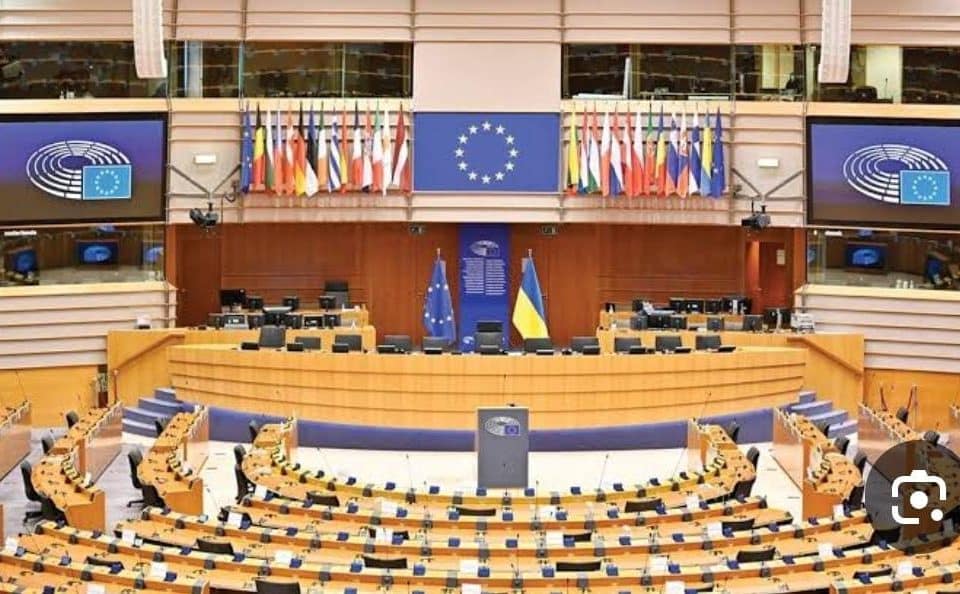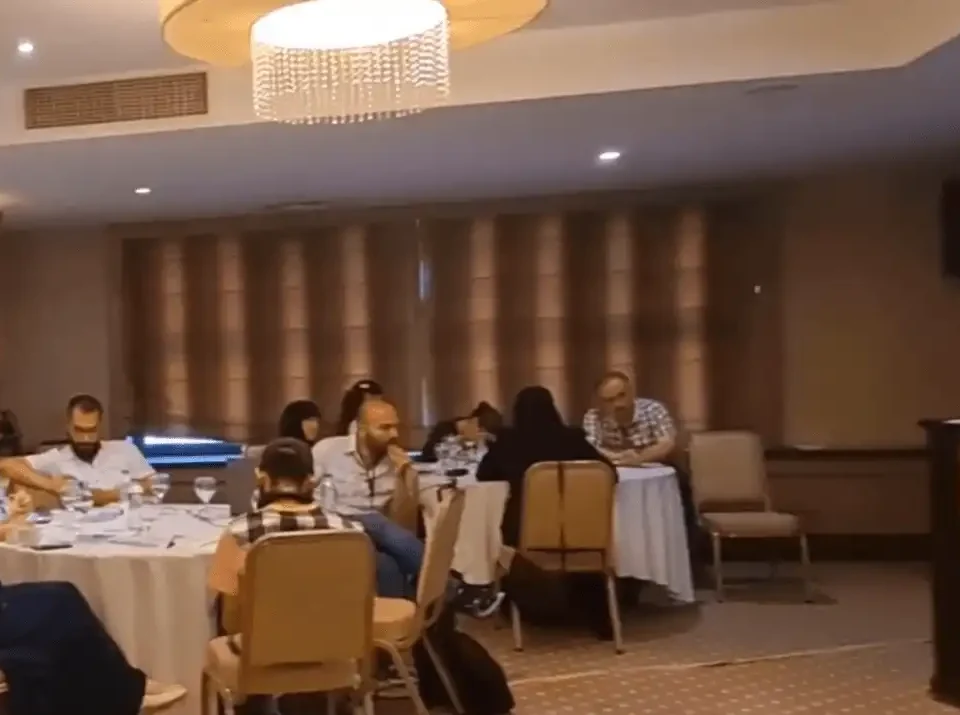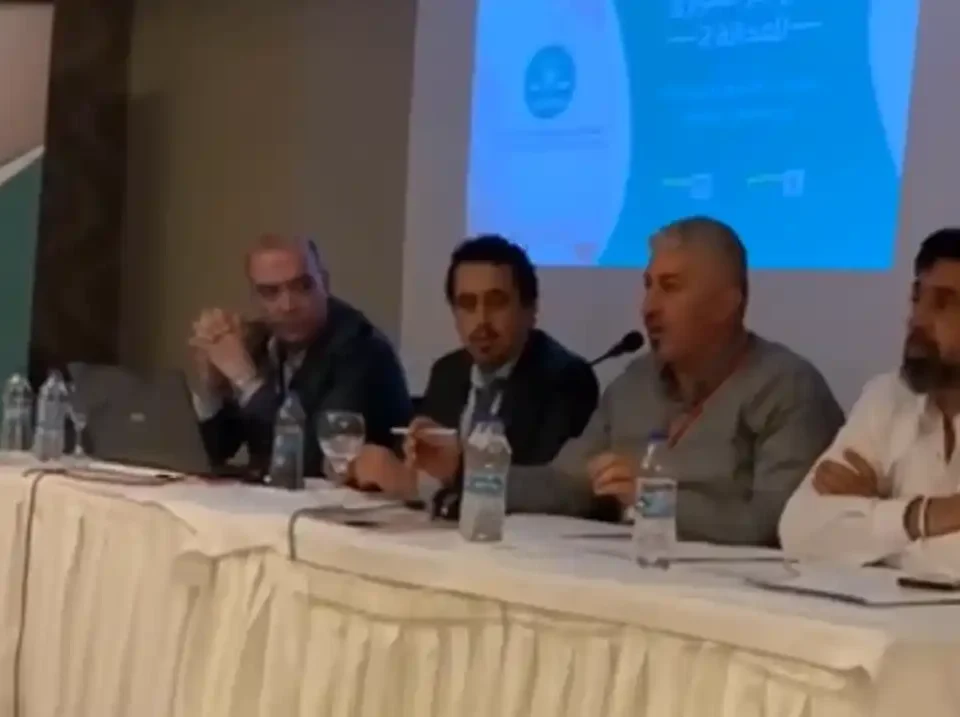In Syrian dialogues, Yaser Al-Farhan speaks about IIMP – TR -February 29, -Syria – March 2-3 / 2024;
Regarding the International Institution for Missing Persons in Syria, Yasser Al-Farhan / Advisor of Mizan Organization clarifies some points that the attendees must address;
This took place in three Syrian sessions held in Gaziantep, Turkey, on February 29, 2024, and in the cities of Azaz and Afrin in northern Syria on March 2-3, 2024;
Attended by a diverse number of families of the missing, survivors, and a number of Syrian human rights figures;
Key points discussed include:
“A practical decision representing an achievement for victims in Syria, finally, an international institution to determine the fate of the missing, considered a precedent in the history of the United Nations in terms of the General Assembly’s decision to establish it. The text emphasizes a structural element for the victims;
Its name is abbreviated as IIMP and its goals are to determine the fate of the missing and support the victims’ families, survivors, and survivors. Its founding team at the Human Rights Commission has finished drafting the procedural elements paper, which was approved by the Secretary-General of the United Nations. The founding team continues to hold meetings and consultations with the relevant parties, awaiting the Secretary-General to issue a decision appointing the head of this institution, with its headquarters in Geneva.
I urge you as victims to find a way to reach this institution. The role of victims in it will be on two levels: an advisory council and a newly established position within the institution called the victim rights advocate;
In our bilateral and public meetings with the founding team, it was emphasized that the institution will provide documents to be handed to families stating that this person is missing. When these documents are issued by the United Nations, they will alleviate many difficulties. Based on these documents, humanitarian support organizations, whether national, international, or regional, as well as psychological and health support organizations, can be approached, and perhaps we can pressure for the settlement of some pending legal situations;
The institution will start its work in April. The platform for the families of the victims will be easily accessible, and among them, there will be individuals with leadership roles in helping others and amplifying their voices, especially those who are unable to access due to technical or geographical reasons. Also, women play a very good role in promoting gender sensitivity for the new international institution;
The institution will provide us with modern technology tools, including, for example, satellites; these are distinctive tools in uncovering the truth, and we have an example of the investigative team’s experience in identifying the perpetrators in the use of chemical weapons;
The new institution does not cancel accountability, and no one can cancel the role of accountability. The institution, in its founding decision and internal regulations, is not subject to the work of the International Investigation Committee, nor to the work of IIIM, nor to the work of the Special Procedures Branch and the Special Rapporteurs and Treaty Committees, nor to the work of the courts hearing cases of enforced disappearances and torture in prisons. All these entities will continue their work, and the institution does not undermine the rights of families, and no one can undermine the rights of families, as this is a right for society, a right for generations, and crimes committed do not expire, and the rights of victims do not expire. In other words, if they were put in constitutions or in articles stating the breach, or if a group of countries agreed on a text in a treaty that exceeds the right to prevent torture in exceptional cases, such as extracting confessions, this is not permissible, and individuals themselves are not satisfied with that and accept returning to slavery and being subjected to any form of torture, this is not permissible. These are five non-relinquishable rights according to international law;
The institution, in its outputs, will serve justice by announcing the truth, and the truth, in my opinion, constitutes half the way to justice, and on it are built the paths of fairness and accountability. On the other hand, the Syrian regime did not respond to this institution, and this is a condemnation. Assad did not fulfill his contractual obligations under the Anti-Torture Convention, and this undermines his legitimacy;
We have discussed all these concerns, and we have come to the conclusion that we welcome the establishment of this institution, despite knowing that it will not carry out accountability, interrogation, investigation, and others, but the data obtained by it will serve the work of investigative bodies. The results announced by the institution to the families of the victims will serve justice; the families are present in the institution’s structure under a decision issued by the General Assembly. I note that international law is evolving, usually governments have members representing them or nominating them in international institutions, this time people have members in this new institution;
The founding team of the International Institution for Missing Persons is actually holding meetings, consultations, and briefings with the Syrian civil society and with victims, outside Syria, and this is a right, and we are ready to assist in organizing meetings of survivors and families inside Syria with the team.





